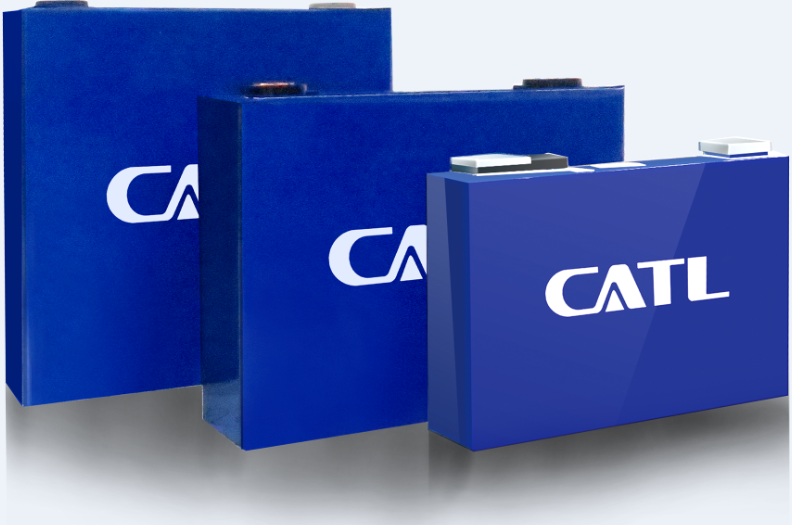TOKYO: Shares of Suzuki Motor Corp slumped 7 percent in early Tokyo trade on Monday after the company flagged an extraordinary loss of 80 billion yen ($714 million) due to the recall of nearly 2 million cars related to improper vehicle inspections. The automaker said on Friday it would book the loss in January-March, its… Continue reading Suzuki Motor shares slide 7% on $714 million recall-related loss
Tag: Financial Results
Nidec Announces A Change in Shareholder Benefit Program
FOR IMMEDIATE RELEASE
Nidec Corporation
Tokyo Stock Exchange code: 6594
Contact: Masahiro Nagayasu
General Manager
Investor Relations
+81-75-935-6140
ir@nidec.com
Released on March 7, 2019, in Kyoto, Japan
Nidec Announces A Change in Shareholder Benefit Program
Nidec Corporation (TSE: 6594; OTC US: NJDCY) (the “Company”) today announced that its Board of Directors has resolved to make a change in its shareholder benefit program at a meeting held on March 6, 2019, as outlined below.
1. Reason and purpose for the change
The Company will change partially its shareholder benefit program in order to thank shareholders for their continuing support, help its shareholders better understand Nidec group’s business, and encourage more shareholders to hold the Company’s shares continuously in the medium and long term by enhancing investment attraction of the Company’s shares.
2. Details of the change
Before the Change
After the Change
Eligible
shareholders
The program will apply ..
Battery Maker CATL Reports Massive Growth YoY
5 H BY GASGOO Big growth for China’s biggest battery maker. On April 8, Chinese power battery maker CATL released a review of its performance in the first quarter of 2019, with an expected net profit ranging from RMB992 million to RMB1.16 billion attributable to shareholders of the public company, surging 140% to 170% year… Continue reading Battery Maker CATL Reports Massive Growth YoY
Equity transcribed: Digging into the Uber S-1
Welcome back to this week’s transcribed edition of Equity, TechCrunch’s venture capital-focused podcast that unpacks the numbers behind the headlines. And because it’s another week, why not another emergency episode? This time Kate Clark and Alex Wilhelm popped in the studio an hour before they were due to record the regular episode in order to… Continue reading Equity transcribed: Digging into the Uber S-1
Japan’s Suzuki Motor estimates 714 mln dollar loss in cars recall
TOKYO, April 12 (Xinhua) — Japan's automaker Suzuki Motor Corp. said Friday it will log about 80 billion yen (714 million U.S. dollars) in loss in fiscal year 2018 due to a recall of two million vehicles in Japan.
The corporation also submitted an investigation report on inappropriate checks on brakes and fuel-economy to the transport ministry, local media reported.
In the report, Suzuki revised the number of cars affected by improper fuel-economy inspections and data falsification to 11,070, up from 8,577 reported last September.
The company said that improper product inspections took place at three plants in Shizuoka Prefecture from April 2008 to last September.
The report also said the company has newly discovered that improper brakes inspections were conducted from June 1981 to this past January.
The company said the faulty inspections took place due to a shortage of inspectors and lack of supervision among other factors.
The automaker said it will spend 170 billion yen..
US lawmakers introduce a bill to require algorithms to be checked for bias
Some tech companies have been challenged recently over biases in their algorithms. Image via Pixabay Lawmakers in the US have drafted a bill that would require technology companies ensure that their machine learning algorithms are free of gender, race, and other biases before deployment. The bill, called the Algorithmic Accountability Act, was introduced in both… Continue reading US lawmakers introduce a bill to require algorithms to be checked for bias
Workhorse and Prefix Corporation Join Forces
Workhorse and Prefix Corporation Join Forces to Refine Workhorse’s Electric Delivery Vehicle of the Future Experienced Teams From Both Organizations Have Formed a Strategic Partnership Focused on Finalizing the Workhorse N-GEN Production Process for Initial Delivery Beginning in the Third Quarter of 2019 CINCINNATI, April 12, 2019 /PRNewswire/ — Workhorse Group Inc. (WKHS)(“Workhorse”), an American… Continue reading Workhorse and Prefix Corporation Join Forces
Tesla Will Use Model 3 Lease Returns For Its Own Autonomous Ride-Hailing Network
Invest
Electric Cars
Electric Car Benefits
Electric Car Sales
Solar Energy Rocks
RSS
Advertise
Privacy Policy
Autonomous Vehicles
Published on April 12th, 2019 |
by Kyle Field
Tesla Will Use Model 3 Lease Returns For Its Own Autonomous Ride-Hailing Network
Twitter
LinkedIn
Facebook
April 12th, 2019 by Kyle Field
Tesla broke the news on its blog today that it would be using lease returns from its new Tesla Model 3 lease program in “the Tesla ride-hailing network.” The blog post is the second confirmation that Tesla will actually own and operate its own fleet of fully autonomous ride-hailing vehicles, with the first note along these lines coming years ago on a quarterly Tesla conference call.
“Beginning today, customers in the U.S. will be able to lease Model 3 for a small down payment and competitive monthly payments. Customers can choose any Model 3 variant and select an annual mileage option of 10,000, 12,000, or 15,000 miles.
“Please note, customers who choose leasing over owning will not have the option to purchase their car at the end of the lease, because with full autonomy coming in the future via an over-the-air software update, we plan to use those vehicles in the Tesla ride-hailing network. Customers can visit tesla.com/3 now to lease a Model 3.”
Previous to today’s announcement, Tesla had spoken of its fully autonomous “Tesla Network” a few times but primarily did so in the context of allowing owners to add their vehicles to the fully autonomous network when their vehicles were not in use. From Tesla’s Master Plan, Part Deux:
“You will also be able to add your car to the Tesla shared fleet just by tapping a button on the Tesla phone app and have it generate income for you while you’re at work or on vacation, significantly offsetting and at times potentially exceeding the monthly loan or lease cost.”
The news today emphasizes that the reach of the Tesla Network will include a fleet of Tesla-owned and Tesla-operated vehicles running around town. The new business model will see Tesla running head first into a market dominated by Uber and Lyft, but without the overhead of a driver. Conversely, Tesla will be running a hybrid business model that will see Tesla-owned vehicles operating side by side with privately owned Teslas for customers’ business. The shift in tactics makes a lot of sense and could see Tesla becoming the first in the ride-hailing industry to actually turn a profit.
Waymo has been pushing forward in this direction and already has a pilot up and running in the greater Phoenix area, but is saddled with the full capital cost of having to develop its own autonomous vehicle solution. Its solution is being bolted onto Chrysler Pacificas that only add to the capital requirement. Tesla, on the other hand, will use its own vehicles, ones that have already had their most expensive depreciation paid for by lessees.
The Tesla Network is not a sure win for Tesla, but does signal that the company continues to ramp up its investment in its in-vehicle software solutions. Its Autopilot and Full Self Driving software packages form the foundation for a new company-owned ride-hailing network as well as a customer-owned ride-hailing network. As the vehicle manufacturer, it appears that gives Tesla a leg up on anyone else currently doing business in the space. That is, if Tesla can deliver on its promise of a “feature complete” Full Self Driving solution by the end of 2019 and a fully baked, “set it and forget it” Full Self Driving solution by the end of 2020.
About the Author
Kyle Field I'm a tech geek passionately in search of actionable ways to reduce the negative impact my life has on the planet, save money and reduce stress. Live intentionally, make conscious decisions, love more, act responsibly, play. The more you know, the less you need. TSLA investor.
Back to Top ↑
Advertisement
Advertise with CleanTechnica to get your company in front of millions of monthly readers.
CleanTechnica Clothing & Cups
Top News On CleanTechnica
Join CleanTechnica Today!
Advertisement
Advertisement
Follow CleanTechnica Follow @cleantechnica
Our Electric Car Driver Report
Read & share our new report on “electric car drivers, what they desire, and what the demand.”
The EV Safety Advantage
Read & share our free report on EV safety, “The EV Safety Advantage.”
EV Charging Guidelines for Cities
Share our free report on EV charging guidelines for cities, “Electric Vehicle Charging Infrastructure: Guidelines For Cities.”
30 Electric Car Benefits
Our Electric Vehicle Reviews
Tesla News
Cleantech Press Releases
New York City Adds To Its Zero-Emission Fleet: 15 New Flyer, Low Floor 60-Foot Xcelsior CHARGE Battery-Electric Transit Buses (Press Release)
U.S. Department of Transportation: $85 Million Funding Opportunity For Technologically Advanced Transit Buses
Congress, Listen Up: The Answer To Climate Change Is Blowin’ In The Wind
38 Anti-Cleantech Myths
Wind & Solar Prices Beat Fossils
Cost of Solar Panels Collapses
© 2018 Sustainable Enterprises Media, Inc.
Invest
Electric Cars
Electric Car Benefits
Electric Car Sales
Solar Energy Rocks
RSS
Advertise
Privacy Policy
This site uses cookies: Find out more.Okay, thanks
Backer of Musical.ly, Grindr and Opera to invest $50M in self-driving startup Pony.ai
A games publisher in China is following the path of its larger peer Tencent to back a wide spectrum of startups for financial gains. Beijing Kunlun Wanwei, or Kunlun, announced in a filing this week that it plans to inject $50 million into autonomous driving startup Pony.ai in exchange for a 3 percent stake. Pony.ai… Continue reading Backer of Musical.ly, Grindr and Opera to invest $50M in self-driving startup Pony.ai
Uber, Losing $1.8 Billion a Year, Reveals I.P.O. Filing
SAN FRANCISCO — Uber, the ride-hailing service that has upended transportation around the world, took a major step toward the largest initial public offering in years when it officially unveiled its finances in a prospectus on Thursday. The offering, which could value Uber at around $100 billion, is expected to reverberate through global financial markets… Continue reading Uber, Losing $1.8 Billion a Year, Reveals I.P.O. Filing


